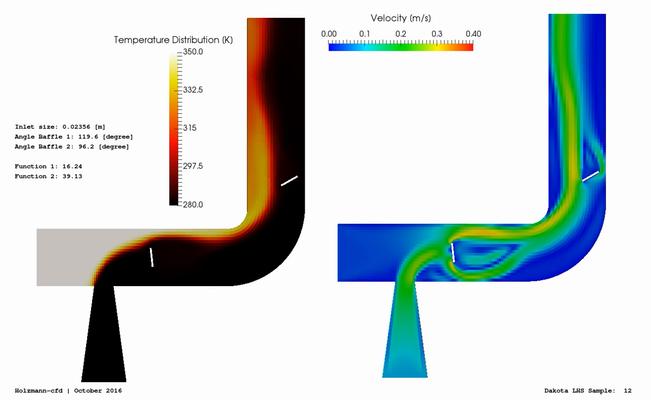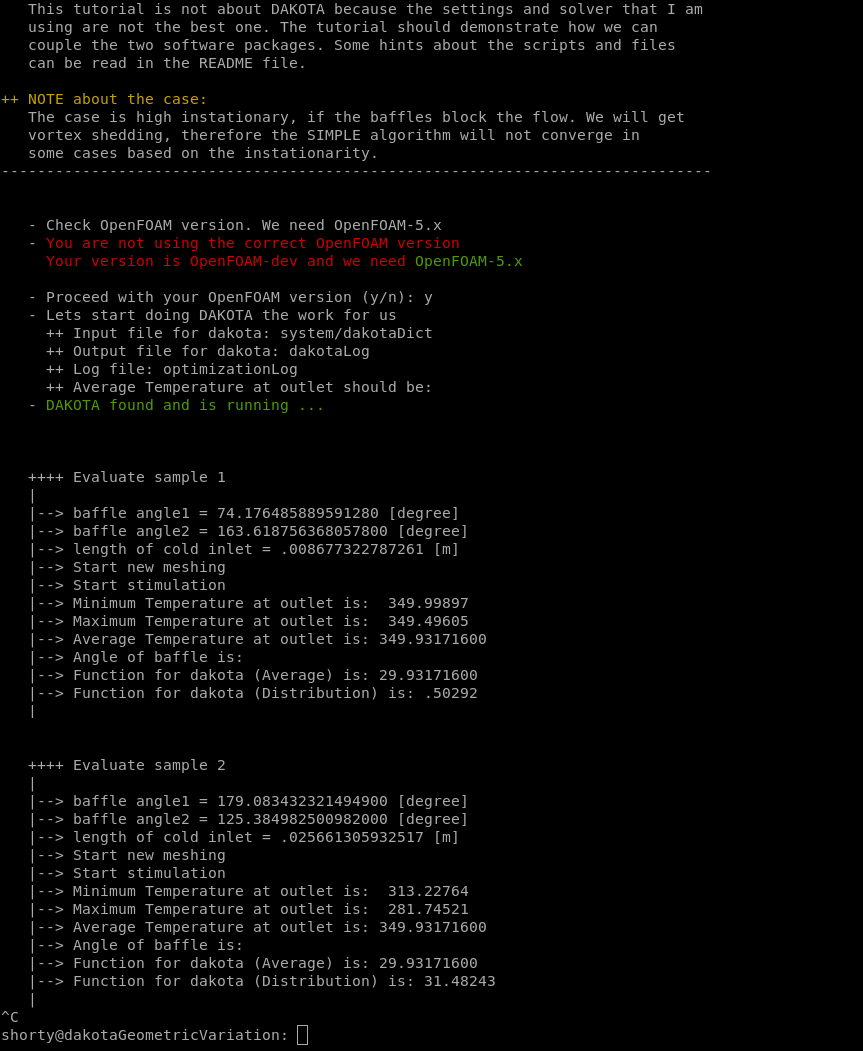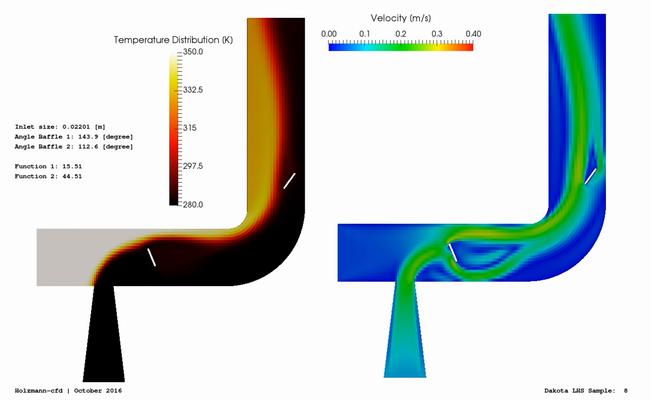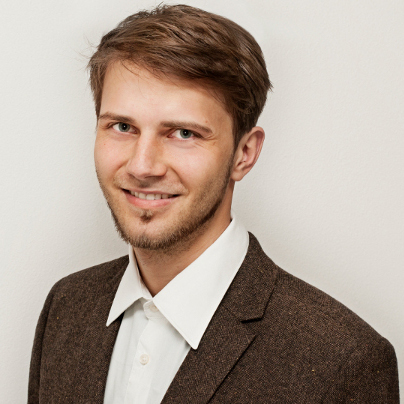Geometric Variation
DAKOTA® coupling, optimization, simpleFoam, steady-state, function objects
Optimization tasks are the state of the art to bring the design to the best performance. To prevent different modeling scenarios manually, the free software toolbox DAKOTA® can be used to automize the optimization task for any kind of investigation. Tobias provides a training case to the community, that shows the coupling of both software toolboxes, DAKOTA®, and OpenFOAM®.
After the coupling is understood, it is an easy task
The following case was invented to give the community insight into the coupling mechanism of DAKOTA® and OpenFOAM®, as well as the fundamentals for optimization tasks. While OpenFOAM® handles the generation of the mesh, the numerical calculation and results analysis, DAKOTA® controls the process of mesh manipulation while the application manipulates different files. The Lattice-Hypercube-Sampling (LHS) method is used for changing the inlet width as well as the angles of the two obstacles that are inside the fluid channel.



Published under the GNU General Public License 3
Over the last ten years, Tobias tried to publish a wide range of different materials related to OpenFOAM® and CFD. You know it much better than he does if the content is worth to be supported. If you want to thank Tobias for the work he did, feel free to tell the community your opinion about the work Tobias Holzmann is doing or you can email your thoughts directly to »community@Holzmann-cfd.com«. Keep in mind that the work that was done here took much time, and it is not self-evident that Tobias Holzmann shares all his work, knowledge, and attitude for free and keep the data up to date. Hosting the material, updating the data, and keeping up interesting work for the community does take much time and also money. Supporting Tobias is greatly welcomed and can be done easily by donating any amount you would like to give to support his projects shared on his website.
Support the work of Tobias Holzmann
The available OpenFOAM® training cases are tested and built for different OpenFOAM® versions (not distributions) on a Linux machine. During the tests, only the OpenFOAM Foundation version of OpenFOAM® was used. Furthermore, the following software packages are required for most of the training cases: Salome®, ParaView®, and for optimization tasks, one also needs the open-source software DAKOTA®. The OpenFOAM® cases might work with the ESI version of OpenFOAM® but it is not supported. For the OpenFOAM® extend project, the training cases will probably not work as the code diverged too much. Additionally, there is no support for Windows-based and MAC-based OpenFOAM® versions.
This offering is not approved or endorsed by OpenCFD Limited, producer and distributor of the OpenFOAM software via www.openfoam.com, and owner of the OPENFOAM® and OpenCFD® trade marks
Share the work on Your social network
Tobias would be grateful if you share his work on your social network in order to keep the OpenFOAM® community up to date. Furthermore, sharing the work will avoid that people investigate into topics, that are already prepared for your study such as the examples provided by Tobias Holzmann.


